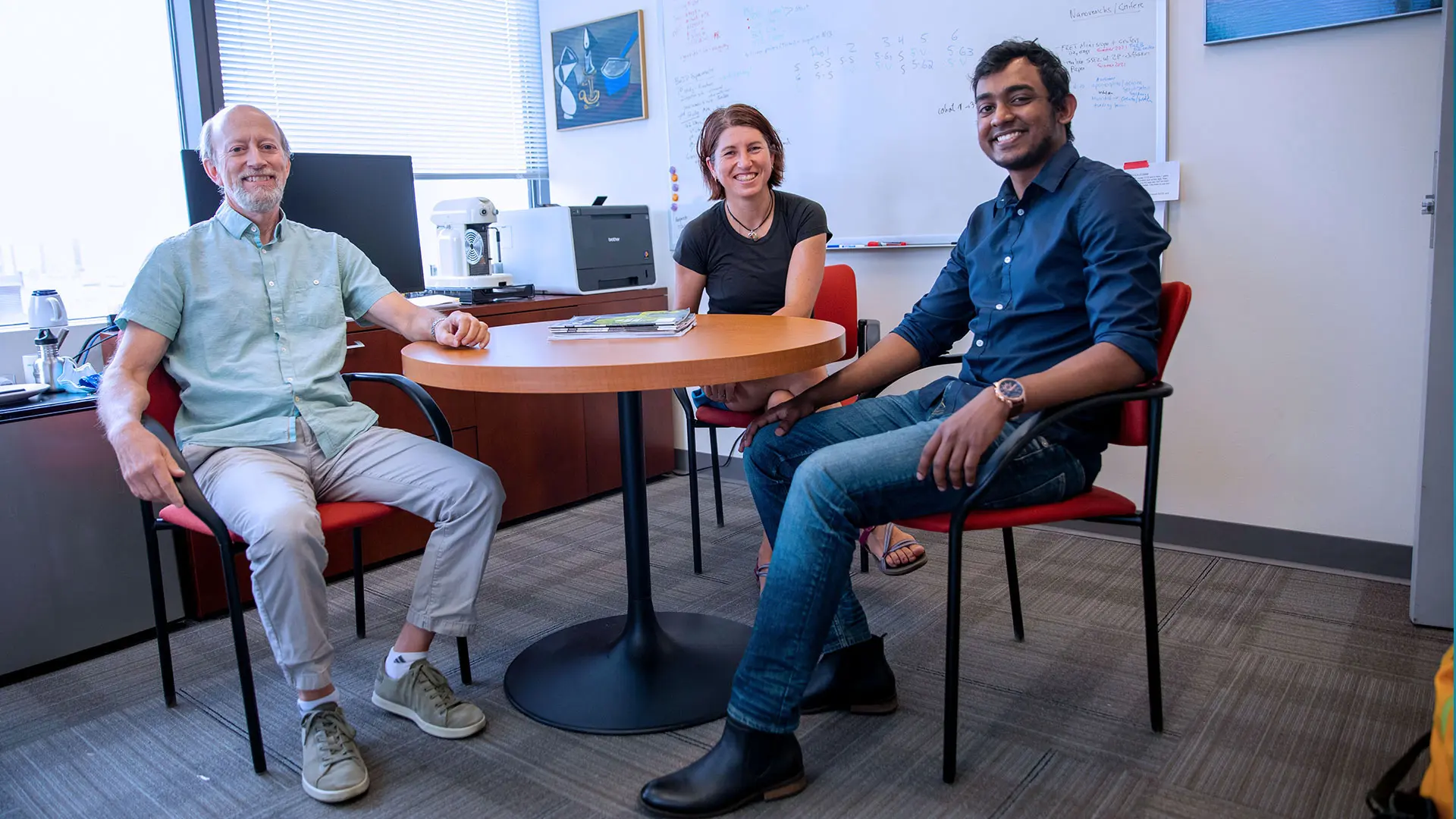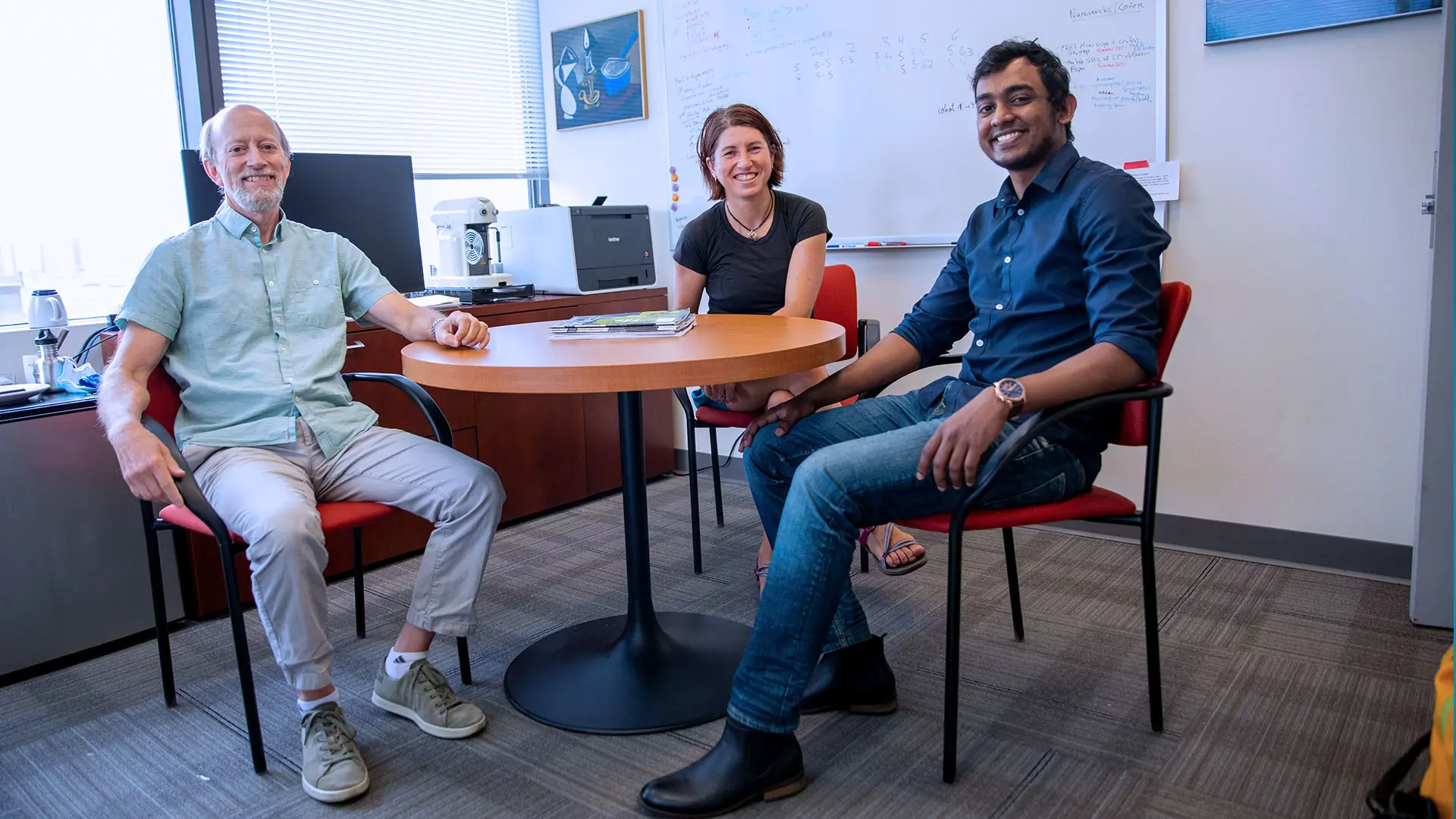Michael B. Fernando, a fourth-year PhD candidate in the Neuroscience Program at the Graduate School of Biomedical Sciences and The Friedman Brain Institute at the Icahn School of Medicine at Mount Sinai, received the Gilliam Fellowship for Advanced Study from the Howard Hughes Medical Institute in July 2021.
The Gilliam Fellowship was created to ensure that students from groups historically excluded from or underrepresented in science are prepared to assume leadership roles in research and science education.
Significantly, the award additionally recognizes Mr. Fernando’s two thesis advisors—Paul Slesinger, PhD, Lillian and Henry M. Stratton Professor of Neuroscience, and Kristen Brennand, PhD, Adjunct Professor of Neuroscience, and Genetics and Genomic Sciences, who is also a Professor of Psychiatry at Yale University, for their dedication to advancing diversity and inclusion.
Mr. Fernando studies the impact of deletions in the neurexin-1 gene.
Mr. Fernando's research integrates neuroscience, genetics, and stem cell
biology to study the functional impact of deletions in the neurexin-1 gene.
Deletions in this gene have been reported to be strongly associated with
several neuropsychiatric syndromes including schizophrenia, bipolar disorder,
and autism.
The highly complex nature of this gene arises from its ability to produce
hundreds of variants that have been reported to be unique to brain regions and
cell types, and it is hypothesized to be fundamental to neurotransmission and
neuro-circuitry.
Combining the expertise of both the Slesinger and Brennand labs,
Mr. Fernando generates neurons derived from stem cells from patients
affected by unique deletions in neurexin-1, comparing their molecular and
electrophysiological states to neurons of healthy individuals.
Ultimately, his work aims to shed insights on the biology of neurexin variants and
how different deletions in neurexin-1 contribute to aberrant circuitry.
“Michael embodies everything one could expect in a promising young scientist.”
Co-advisor Paul Slesinger, PhD
“Michael embodies everything one could expect in a promising young scientist.
He is exceptionally talented and extremely motivated to ambitiously tackle the
biggest problems in brain disease, exuding that excitement that we all recognize
in individuals that will make a difference,” says Dr. Slesinger.
“I have been fortunate to have worked with many incredibly talented graduate
students at Icahn Mount Sinai over the years,” says Dr. Brennand. “Through
my experience mentoring Michael, he has actually taught me so much about
motivation and perseverance. It has been a true pleasure watching Michael grow
into the scientist he is, and I’m looking forward to seeing what he will do next,
since he is destined to be a true superstar and
leading academic scientist.”
Mr. Fernando strategically chose two co-advisors with unique mentoring
styles to guide him. Dr. Slesinger, an expert in neurophysiology and protein
biology, and Dr. Brennand, an expert in applying stem cells to model complex
neurogenetic disorders, have a long history of collaboration together and are
invested in his development.
Working closely with his advisors and other faculty members to develop key skills, Mr. Fernando has contributed to several publications and helped to peer review manuscripts at various journals. He has presented his work at a number of conferences and participated in selective workshops to increase his expertise, such as the Human Brain Organogenesis Workshop at Stanford University, for which he was interviewed by Nature Methods.
“Their mentorship is remarkable, and I truly feel I've won the jackpot in choosing my thesis labs.”
Michael B. Fernando
“I am so grateful for this opportunity, and to be joining such a welcoming and
diverse community at the HHMI. I cannot thank my advisors enough for all they
have done to support me, both professionally and personally, since I began my
graduate training. Their mentorship is remarkable, and I truly feel I've won the
jackpot in choosing my thesis labs," says Mr. Fernando.
In addition to his work as a thoughtful and diligent scientist, Mr. Fernando has a strong interest in learning to mentor trainees, to effectively communicate science, and to lead outreach efforts targeting historically underrepresented minorities.
Outside the lab, he serves as co-President of Mentoring in Neuroscience Discovery at Sinai (MiNDS), a student-led initiative that strives to make neuroscience education more engaging and accessible. This group empowers and inspires young students by extending resources to local East Harlem schools and community centers. As one of the leaders of MiNDS, he co-organized Icahn Mount Sinai’s annual Brain Fair, and led teaching programs at an East Harlem public school.
“We are delighted at HHMI’s recognition of Mr. Fernando’s talent and potential to
become a leading scientist, as they simultaneously recognize the commitment
of his outstanding co-advisors to create inclusive and inspiring scientific
environments for young scientists,” says Eric J. Nestler, MD, PhD, Nash Family
Professor of Neuroscience, Director of The Friedman Brain Institute, and Dean
for Academic and Scientific Affairs for Icahn Mount Sinai, who nominated
Mr. Fernando and his co-mentors. “This fellowship reflects Mount Sinai’s
commitment to creating an equitable, diverse, and inclusive research enterprise
that empowers all members of our community to drive scientific discovery.”
“This fellowship reflects Mount Sinai’s commitment to creating an equitable, diverse, and inclusive research enterprise that empowers all members of our community to drive scientific discovery.”
Eric J. Nestler, MD, PhD

Michael B. Fernando with his mentors Paul Slesinger, PhD, and Kristen Brennand, PhD.
